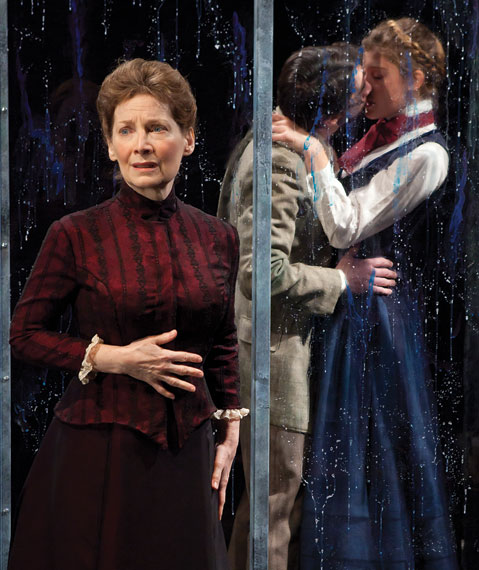Ghosts by Ibsen at ETC
Ensemble Stages Henrik Ibsen’s 19th Century Drama Starting March 31
Oh, those amusingly ignorant 19th-century Norwegians—they thought a man’s unhealthy habits could wreak havoc on his son’s life. That idea of tragic biological inheritance is at the heart of Henrik Ibsen’s 1881 drama Ghosts, in which a young man suffers from syphilis acquired via his father’s sperm, or perhaps by puffing on papa’s pipe.
Today, of course, we know better. But we may be wrong. A recent cover story in the nationally distributed Santa Barbara-based magazine Miller-McCune (where—full disclosure—I am a staff writer) describes new research suggesting a father’s bad habits in the years before he impregnates a woman can have an impact on his child’s health. In a sense, the science has come full circle.

This should put to rest the silly but persistent notion that Ibsen’s plays are dated. True, the Norwegian playwright liked to take on timely but taboo topics. The frosty reception for Ghosts suggests that his contemporaries were not appreciative of his efforts to knock them out of their state of denial.
But the issues he addresses in this play remain very much with us today: the allure of conformity, the impulse to deny difficult truths, and the destructive nature of patriarchal privilege.
“At one point, the pastor uses the word ‘normal’ in relation to sexual morality,” said Jonathan Fox, director of the Ensemble Theatre Company staging that opens March 31, at the Alhecama Theatre. “That’s an argument we’re still having. What’s normal? What should be normal?”
The proselytizer for “normality” is Pastor Manders, Ibsen’s enforcer of conventional morality. He serves as the spiritual adviser of the central character, Mrs. Alving, who faces a crisis when her adult son returns home, feeling ill and declaring his love for the family maid, who (unbeknownst to him) is his half-sister.
Ibsen clearly believed the impulse to put up a good front and keep unpleasant secrets hidden was both corrupting and hurtful. As New York Times critic Ben Brantley has put it, the ghosts of the title represent “outmoded conventions and pieties that suffocate life.”
Nevertheless, Fox sees the play as more of a psychological drama than a polemic. He notes that the pastor “is as afraid as anybody.”
“He says in one scene that if we let our morals slip, the whole society will crumble,” Fox said. “You hear that same argument today. I don’t think Ibsen took sides as much as we think he did.”
While the sociopolitical themes of Ghosts continue to haunt us, the play isn’t an easy one to stage successfully. Ibsen’s dramaturgy was as old-fashioned as his ideas were radical, and in the wrong hands, his dramas can seem rather stodgy.
“I’m surprised at how much humor there is in the play,” said Fox, who has never directed it before (nor, he added, seen a production). He credits a new (2007) translation by Amelia Bullmore, which strips away a lot of the wordiness and clocks in at an intermission-less 95 minutes.
The translation is “shockingly modern-sounding, even though there are no terms that are consciously contemporary,” he said. “It has blown the dust off the play.”
“It [the translation] was clearly written by a woman,” he added. “You can sense that in the relationship between mother and son.”
To complement the streamlined translation, Fox is using a spare, simple set. That alone will set it apart from the last local production of this play, a 2004 staging by the Santa Barbara City College Theatre Group. The director was Katie Laris; while she and Fox are friends, their approaches to this classic text promise to be quite different, and should be intriguing to compare.
4•1•1
Ghosts shows March 31-April 24. Tickets are $20-$55. Call 965-5400 or see ensembletheatre.com.



